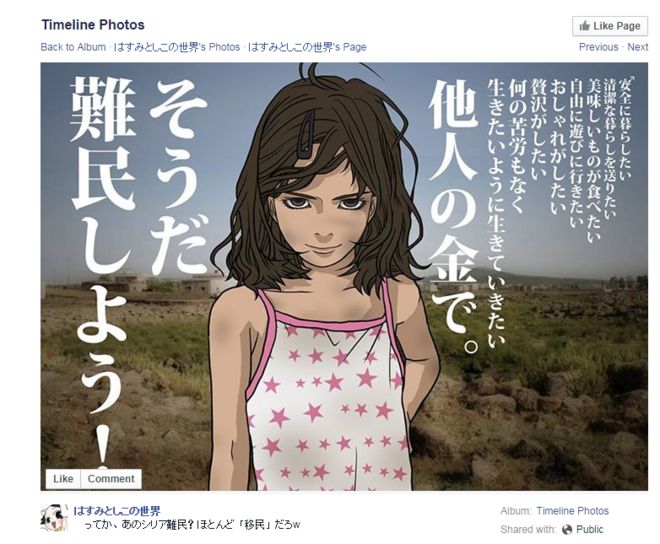Funkyhamster
Member
I just came across this article on BBC. A heartwarming story and an interesting cross-cultural exchange. I've never read Captain Tsubasa, but I'd be curious to hear from those who have.
http://www.bbc.com/news/world-asia-39801464
Save me from dictators with Japanese cartoons if old.
"The situation in Syria is terrible - so terrible that I think it stops kids from dreaming. But it's their dreams that one day will make Syria good again," says Obada Kassoumah.
"I wish I could just give them a little bit of hope and make them believe that yes, they can have dreams."
Obada is a Syrian student in Tokyo who, by a mixture of chance and determination, has become the translator of Japanese manga comics into Arabic.
And by another twist of fate, many of these Arab editions of football saga Captain Tsubasa have been donated to aid agencies and are being handed out to Syrian refugee children across Europe and the Middle East.
For Obada, the project started as an unexpected translation job but has become something very personal and important.
Initially, adapting the books for the Arab market was a mere business decision by a Japanese publisher.
But they were then approached by Prof Masanori Naito, a Middle East specialist at Doshisha University in Kyoto.
Prof Naito had spent several years in Damascus as a doctoral student in the 1980s and was looking for ways to help people affected by the conflict.
He suggested the publisher could donate some of the manga books to refugee kids.
"The tragedy of Syria," he says, "is a very serious concern to me. Back then I worked in villages that are now held by the rebel forces."
The original copyright holders in Japan, Shueisha publishers, were immediately ready to fund the donations, he said.
Through co-operation with a number of international NGOs and Unicef, the books are now being distributed to young Syrian children in camps across Europe, Turkey and the Middle East who have escaped the terror and trauma of the civil war ravaging their home country.
"It is very far from the reality they know," Prof Naito explains. "But for kids it is very important to be able to escape from reality for a while. And these books can also give them some hope for their own future."
Manga he says, could even be "a tool of soft power against despair and radicalisation".
http://www.bbc.com/news/world-asia-39801464
Save me from dictators with Japanese cartoons if old.




